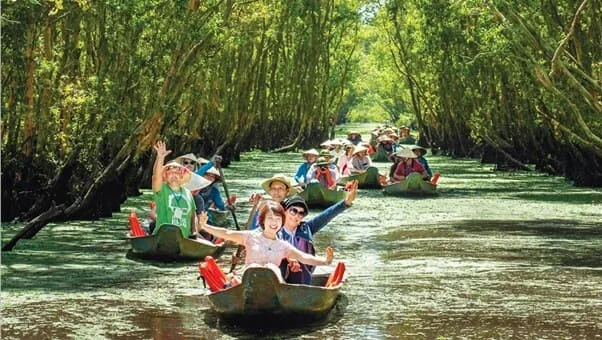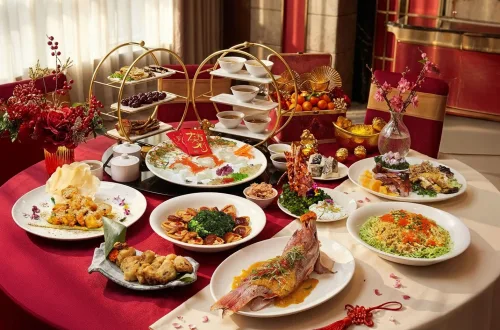
Floating Markets and River Life in the Mekong Delta
The Mekong Delta, often referred to as the “Rice Bowl of Vietnam”, is a vibrant region in the south of the country where life flows in tandem with the river. A labyrinth of waterways, lush green rice paddies, and small villages make this delta an essential experience for travellers seeking a deeper understanding of Vietnam’s culture. At the heart of this region lies one of its most enchanting features: the floating markets.
Unlike conventional markets, floating markets unfold entirely on the water, where hundreds of boats gather daily to trade fresh produce, household goods, and local delicacies. These markets have been a central part of Mekong life for generations, stemming from a time when roads were scarce and the river was the primary route for trade and transport.
Cai Rang Floating Market, near the city of Can Tho, is the largest and most well-known. Here, vendors rise before dawn, their boats laden with mangoes, papayas, coconuts, pineapples and countless other fruits. The sight is nothing short of magical—boats bobbing gently, traders calling out their wares, and the scent of fresh herbs wafting through the air. Many sellers live on their boats, and their entire day revolves around the rhythm of the river.

Each boat displays its goods on tall poles to show what’s for sale, a practical method that saves time and helps customers identify sellers from afar. Some vendors also serve breakfast directly from their boats—pho (Vietnamese noodle soup), banh mi (baguette sandwiches), and strong Vietnamese coffee are popular offerings. It’s not just a market; it’s a floating community full of colour, chatter and charm.
Beyond the markets, life in the Mekong Delta is inseparable from the water. Families live in stilt houses along the riverbanks, fish in its currents, and grow rice and fruits in the fertile surrounding lands. Traditional wooden boats, or sampans, are still the main mode of transport, especially in more rural areas. Travelling through these small canals, visitors can glimpse daily life—children cycling on narrow paths, women washing clothes by the river, monks in saffron robes gliding past in silence.
To fully appreciate the Mekong Delta, an early morning boat tour is essential. Many tours include a visit to a local home or workshop, where travellers can learn how coconut candy or rice paper is made. Some even offer the chance to cycle through the countryside or stay in a homestay, providing an authentic and memorable experience.
As Vietnam continues to modernise, the Mekong Delta remains a living museum of the country’s agrarian roots. The floating markets are not just a spectacle for tourists—they are a symbol of resilience, adaptation, and the enduring connection between the Vietnamese people and their rivers.
Whether you’re a food enthusiast, a culture seeker, or simply curious, the Mekong Delta offers a gentle, rhythmic escape into a way of life shaped by water, community, and timeless tradition.





